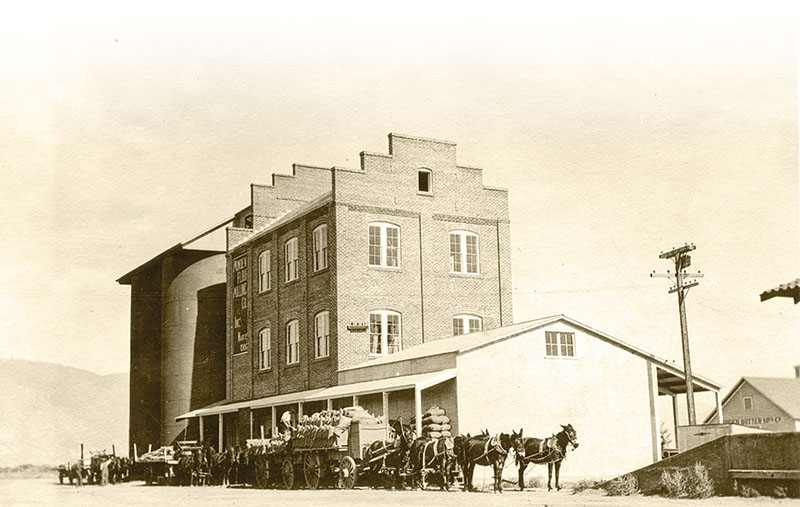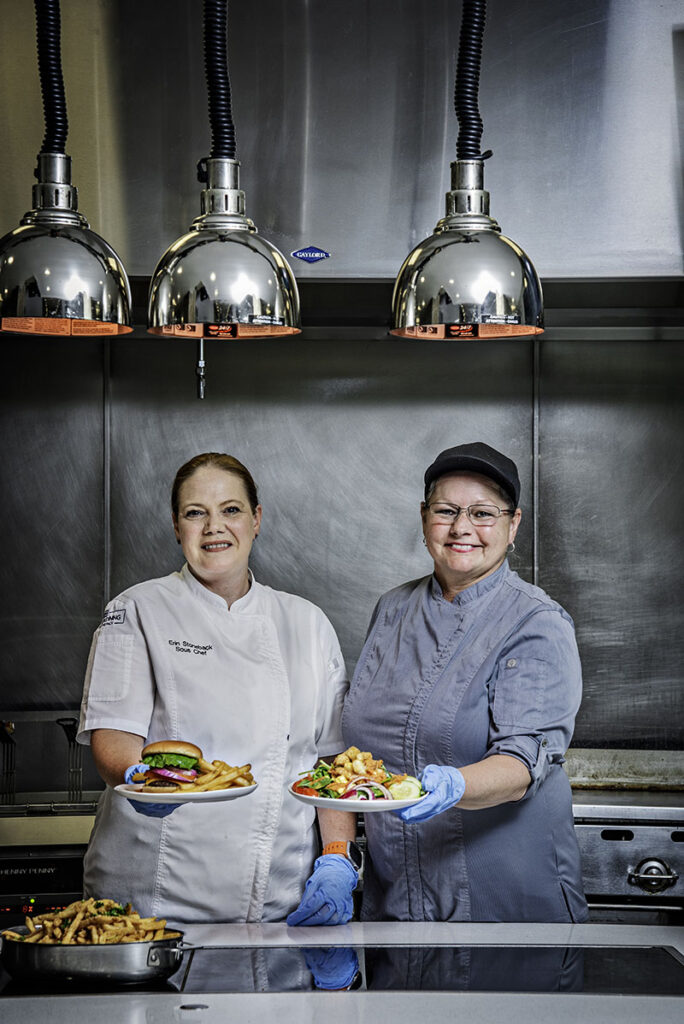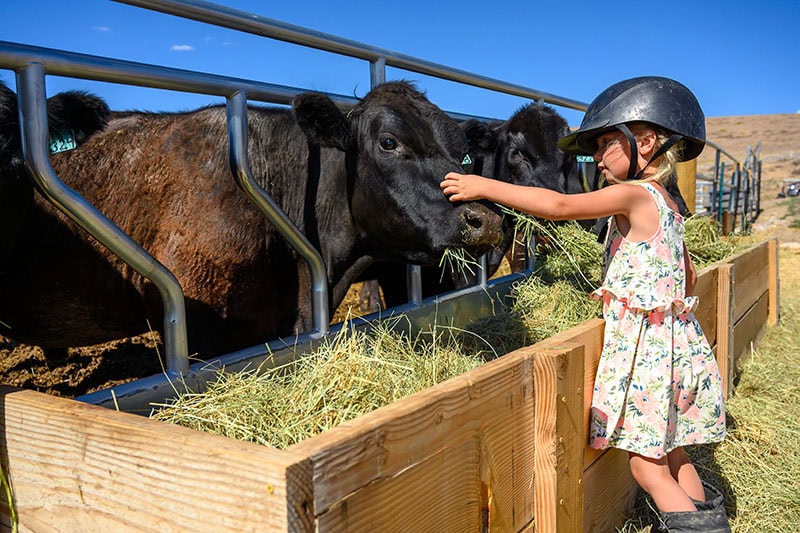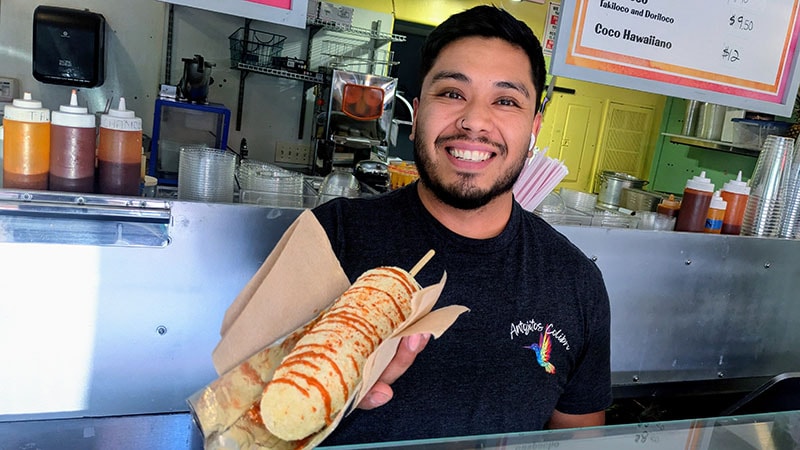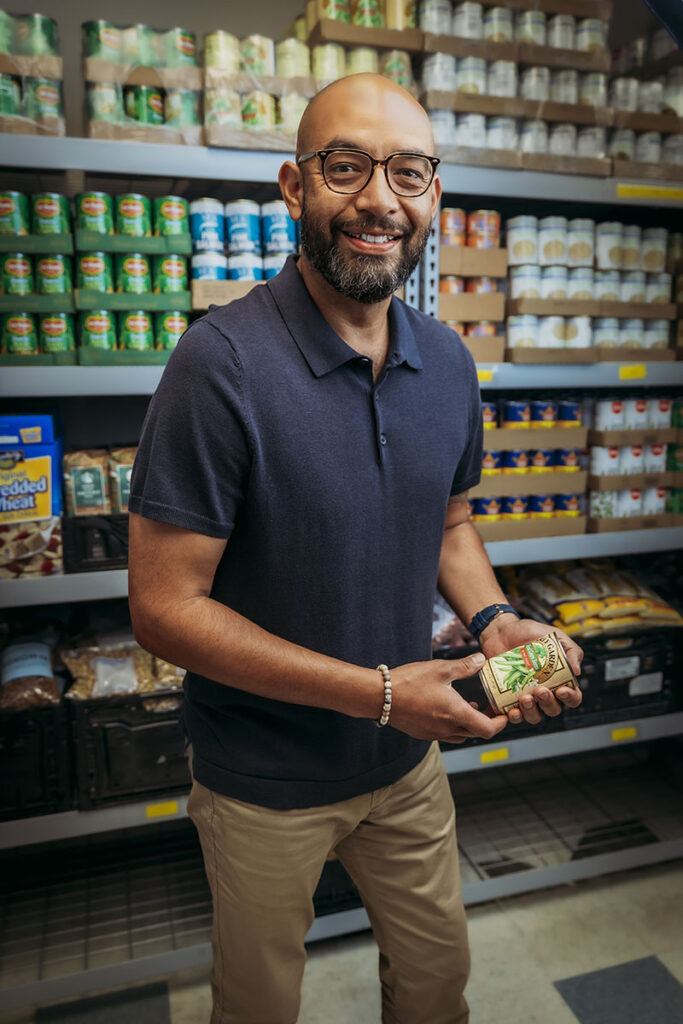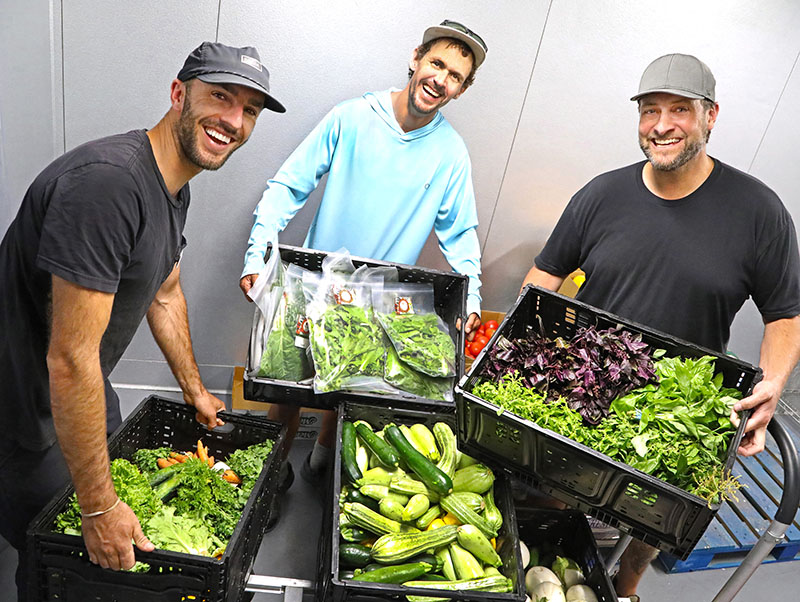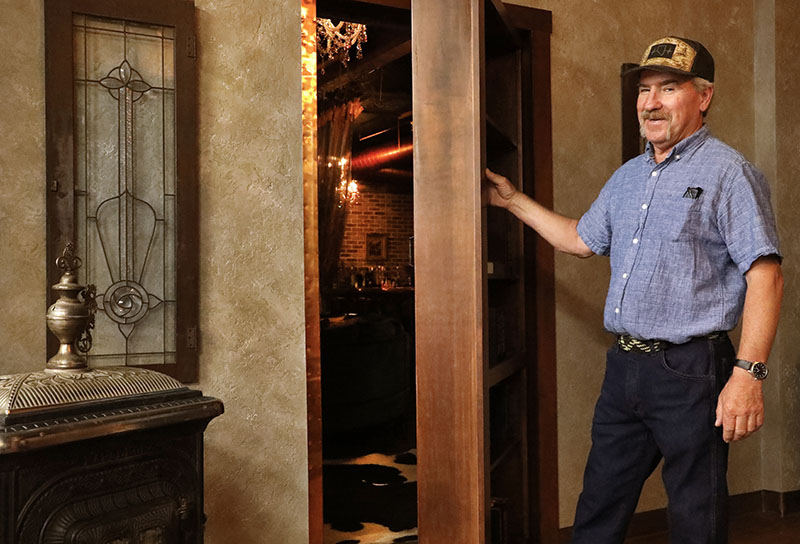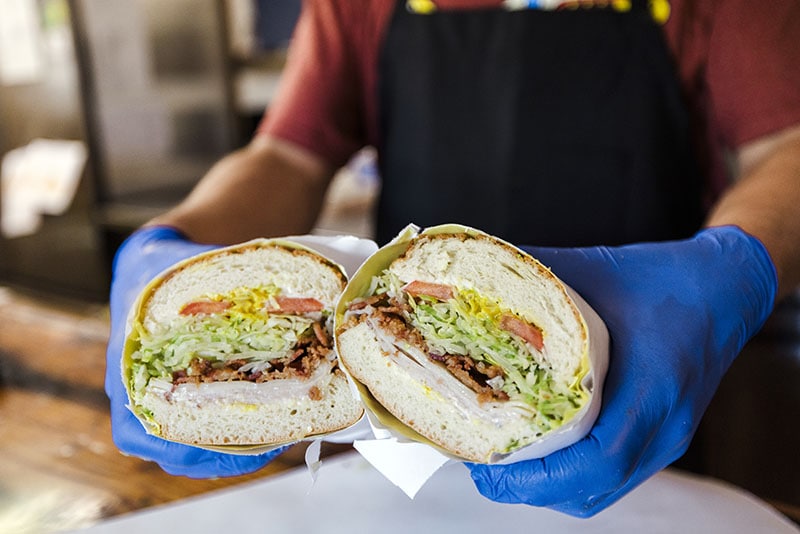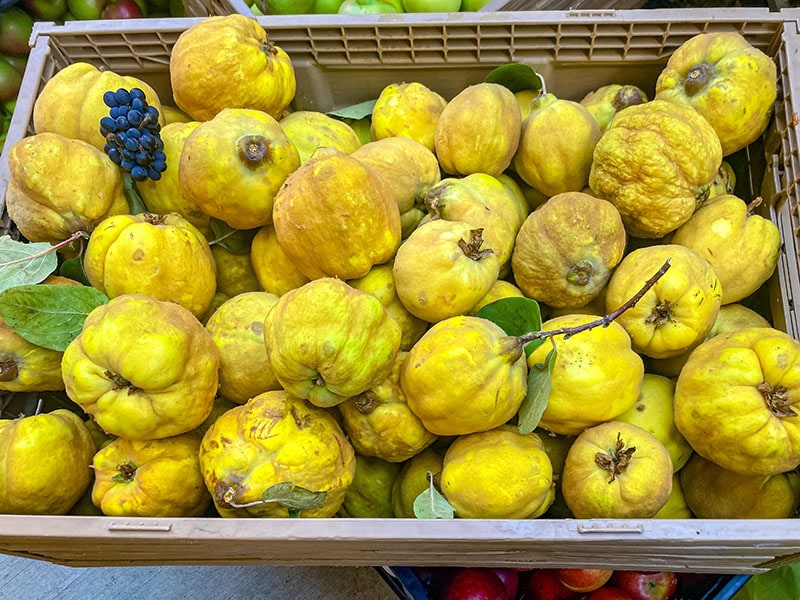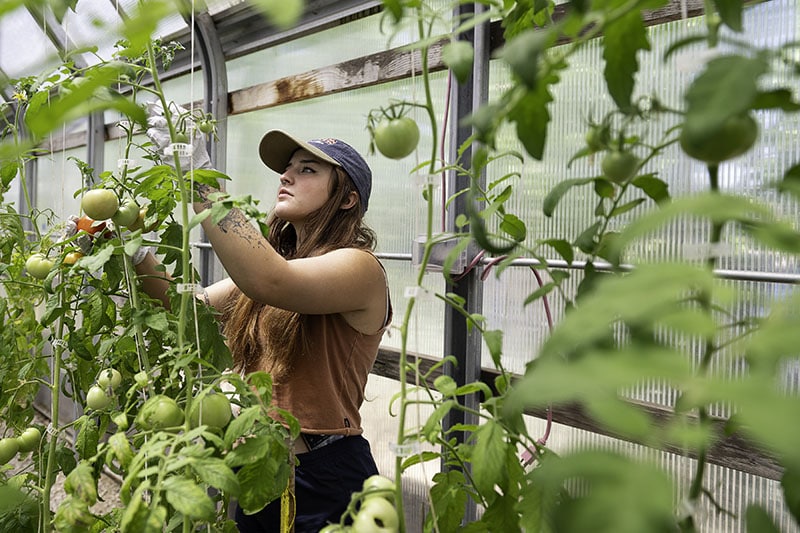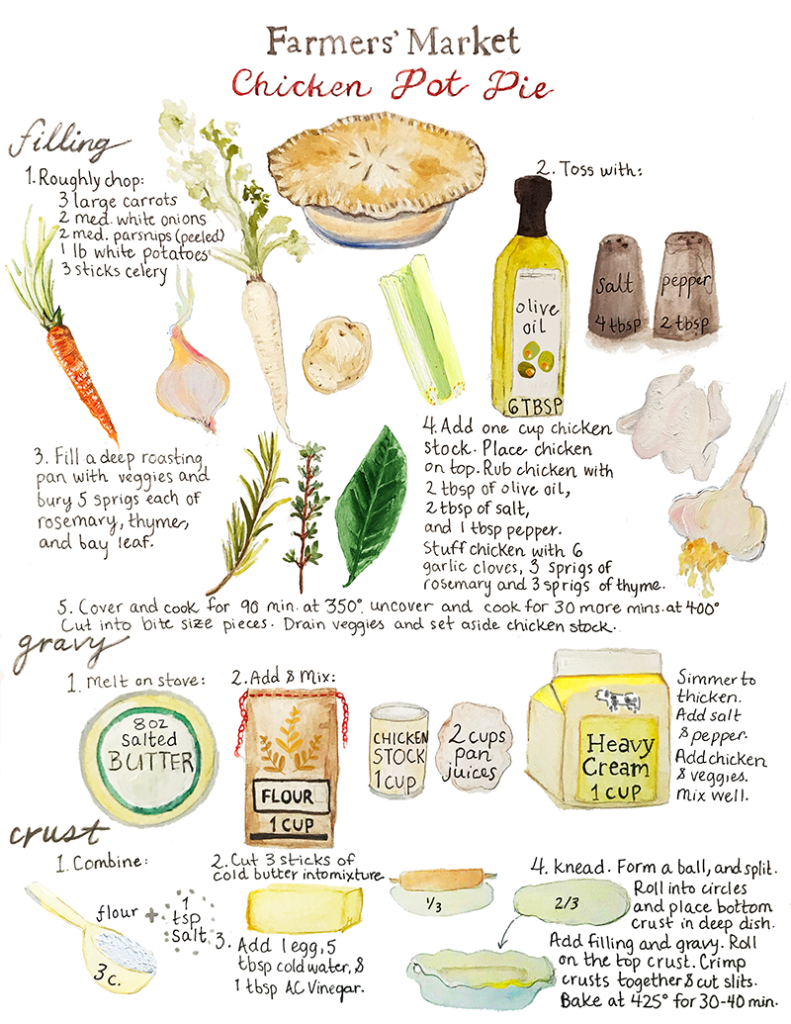The Culinary Classroom
Students learn more than knife skills in local high school programs.
Though home economics class — or its more modern iteration, family and consumer sciences — is no longer prevalent in high schools, students are learning kitchen skills in a new way across Reno-Tahoe. Growing numbers of high school culinary arts programs not only teach students how to cook meals for themselves and their families, but also pave the way for passionate young chefs to get a head start on careers in the food industry.
At Douglas High School in Minden, Sarah Crofton teaches the culinary arts program to students who want to build a foundation for future careers in the hospitality industry.
“I actually went through the culinary program back in the late ‘90s/early 2000s at Carson High School, then went to culinary school and worked in the industry for many years. Eventually, I was kind of burned out and realized what I loved most about food was talking to other people about it,” Crofton explains.
Crofton uses the ProStart curriculum, a culinary roadmap developed by the National Restaurant Association Educational Foundation, to teach a two-year career and technical education program. The program gives students the opportunity to earn industry certifications, including ServSafe Food Handler and OSHA Safety and Health Fundamentals, while learning the ins and outs of a complex industry.
The program includes a large food-safety unit. Students also learn knife skills and kitchen basics, such as mise en place (cook preparations and layouts). They learn about culinary math, food and labor costing, how to adjust recipes, how to purchase items, and what to check when receiving purchases. There also is an intro to baking segment. They make soups, stocks and sauces, sandwiches, pizza, salads, dressings, and dips. In addition, students take a whole unit on the business side of culinary careers, which includes marketing and management. In the second year, students learn more advanced techniques, including cooking meat, poultry, and seafood; preparing complicated desserts and baking techniques; and they even learn a little fermentation. Students gain knowledge about the front of house, back of house, and the kitchen brigade system. Finally, they learn about the importance of communication, teamwork, and collaboration.
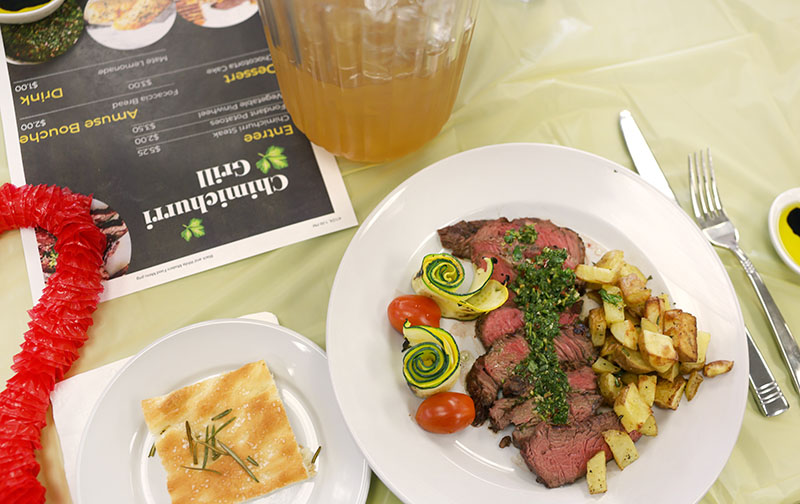
Students get workplace experience by catering events and running mock restaurants for 25 to 30 school employees, handling everything from creating the restaurant theme and menu to ordering supplies and executing the service with their team.
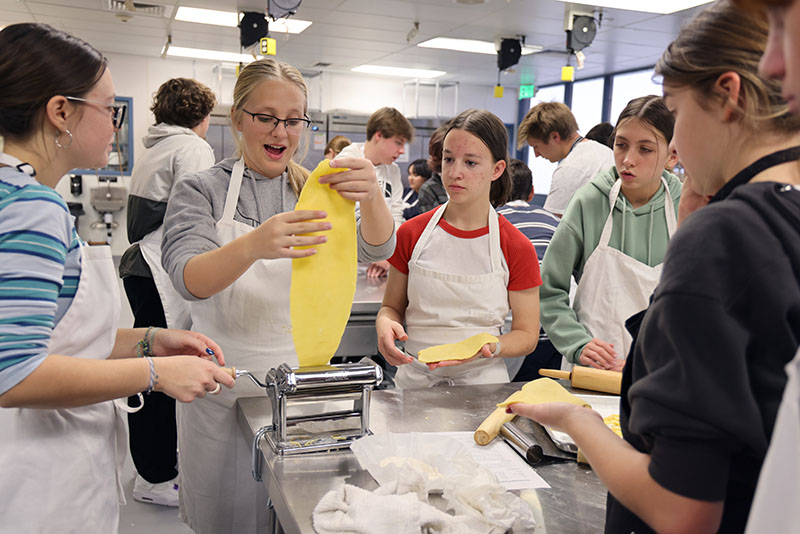
For the eager culinary student, independent advanced studies are available to further their knowledge on topics of their choosing.
“We talk a lot about career development and the different job opportunities out there,” Crofton says. “It really opens their eyes to all that the industry encompasses.”
Keep On (Food) Truckin’
At Edward C. Reed High School in Sparks, students in the culinary program are getting firsthand experience in one extraordinary facet of the food industry: the food truck.
In 2023, business software company Intuit launched an educational food truck program that provides operational commercial food trucks to select high schools and a corresponding curriculum. This allows students to learn how to operate a small business and use the company’s financial software tools.
After Reed was selected for the program, culinary students got to work interviewing hundreds of peers, teachers, and community members about what they would like to see in a food truck and, using that data, landed on their mission statement and food truck concept.
Last December, the students unveiled the food truck, Global Street Foods, featuring a wrap created by graphic design students at Spanish Springs High School in Sparks.
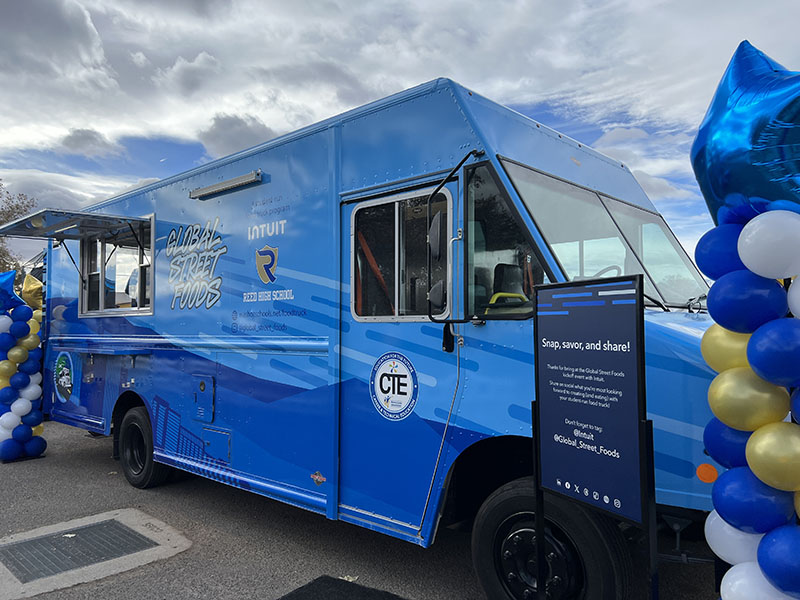
“The [Reed] students will be handling all of the running of the business,” explains Michelle Peterson, the instructor behind the culinary program at Reed. “They’ll do all the scheduling, purchasing, and cooking. This fall, they will get going on their QuickBooks certification. I’m basically just there to fill up the truck and drive.”
Though the food truck has not officially launched yet as the school awaits certification from the health department, the students have been workshopping menu items in the classroom kitchen, including the social-media-trending Korean corn dog.
“This is so important because they are learning real-world applications in the classroom,” Peterson says. “When they graduate, they are ready for a job on day one. They don’t need to be trained. They have industry-recognized certifications. And a lot of them could go into managerial positions when they are finished.”
Job Ready
Job development is the name of the game at the Academy of Arts, Careers and Technology (aka AACT) in Reno, and the school’s Culinary & Hospitality Academy Program is committed to it.
AACT is one of just two high schools in Nevada and a dozen high schools on the West Coast accredited by the American Culinary Federation.
“Here’s the funny thing,” says Fred Wright, a culinary arts teacher at AACT and treasurer of the American Culinary Federation High Sierra Chefs Association. “A couple of years ago, I finished a master’s degree in career and technical education — a graduate-level degree for the sole purpose of teaching kids they don’t need to go to college to be successful.”
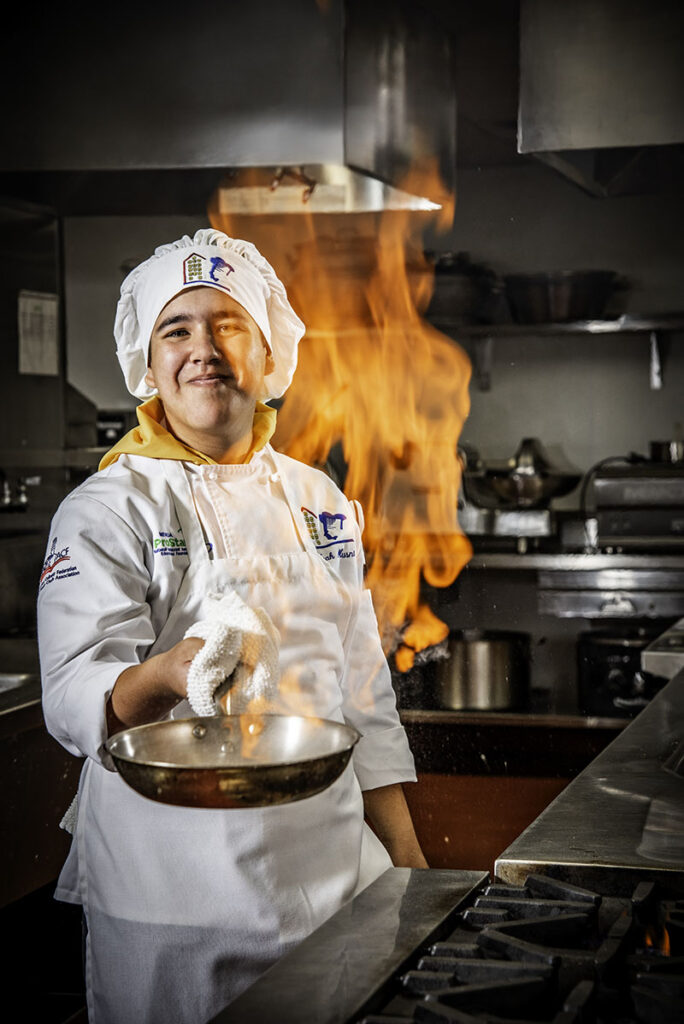
Despite the irony, Wright strongly believes in the power of career and technical education when it comes to preparing students for future job opportunities — or giving them the freedom to pursue advanced degrees at their own pace.
“I think the No. 1 benefit to these programs is the fact that kids need to be able to explore different career opportunities and see whether that career is for them or not, and learn how they can get into that industry,” Wright says. “They are not only learning what the industry is about, but they’re getting the skills to be a part of it right out of high school. I have past students right now working in the industry who are going to college. They’re slowly going to college, one or two classes, but they’re working full time making $75,000 a year.”
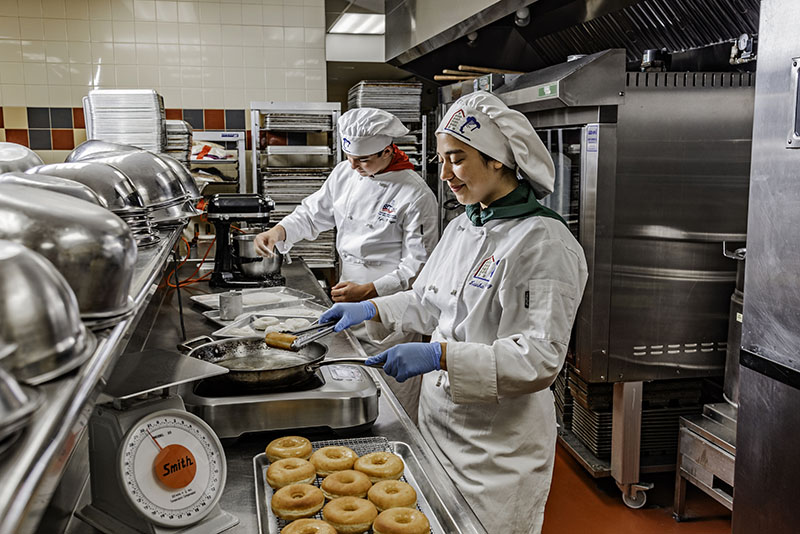
Over his 15-year tenure at AACT, Wright has experienced a surge in the number of students wanting to join his culinary program. Currently, he has a waitlist of 150 students.
The rise of the celebrity chef and Instagram- and TikTok-famous food “content creators” has certainly put culinary careers on a higher platform. Many students also have become more aware early on about the struggles that can result from college student loan debt, particularly when there is no guarantee of work after graduation.
“I have the Food Network and shows like Chopped and even Hell’s Kitchen on Fox and other shows that promote culinary arts. I don’t have to go out and promote my program,” he explains. “I tell them when they come to my program, ‘You think you want to learn how to cook, and that’s good. I’ll give you some steps. I’ll try to teach you how to cook, but if you really want to learn how to cook, watch YouTube videos and make a mess out of mom’s kitchen. I’m going to teach you how to do the business side of things. I’m going to teach you the financial part of it. I’m going to teach you how to become a professional, how to show up to work on time, and how to put the cell phone away.”
Wright estimates that anywhere from 30 to 50 percent of his students stay in the culinary arts after completing his four-year program. And the Reno-Tahoe food industry needs every last one of them.
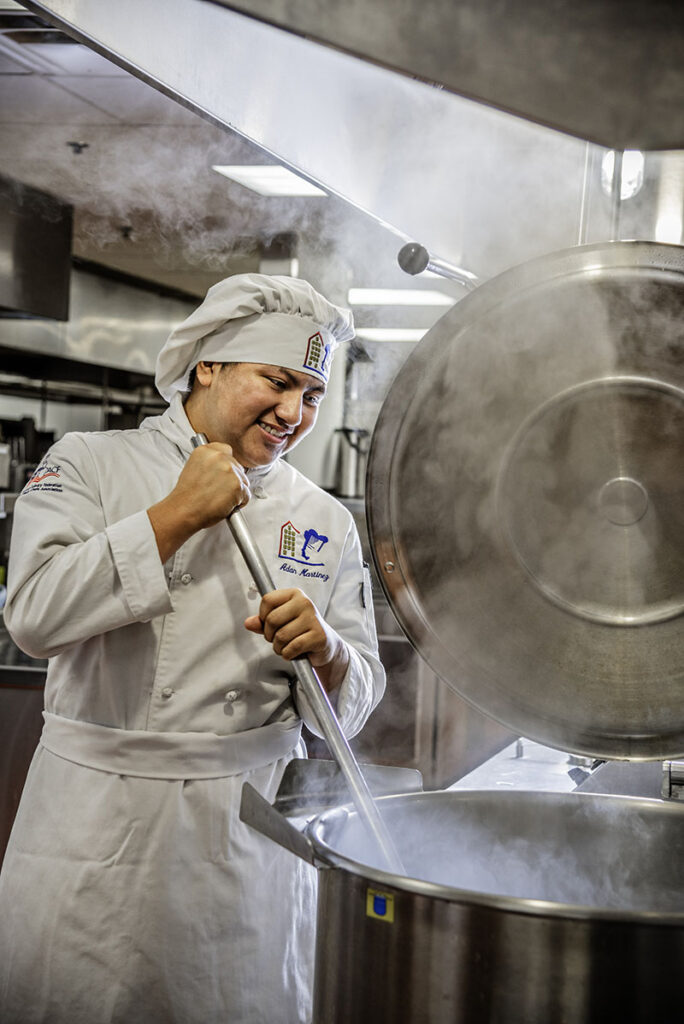
“There’s always a need for employees. I’m always getting phone calls [from employers]. Truckee Meadow Community College culinary program is always getting phone calls,” Wright says. “And at the [High Sierra Chefs Association], we always sit at meetings, and we talk about the shortage of staff in restaurants and where we are going to get this next generation of staff. And that’s why programs like these are super important.”
Next Steps
In fact, the culinary arts program at TMCC in Reno recently expanded in response to the growing demand.
“During Covid, enrollment was low, but now we are booming,” says Karen Cannan, the program coordinator. “We have increased our class enrollments 100 percent, so we’ve had to add extra classes and increase class sizes quite a bit. It’s exciting.”
Through the ACF’s Chef and Child initiative, TMCC works closely with local high schools (and other schools), matching students with chef mentors and sending instructors into the schools for demonstrations.
“We have articulations with the high schools so that students who acquire experience in their time there are able to come in and bypass our very basic-level courses,” Cannan notes. “So they’re able to come into our program with as many as nine to 11 credits toward our degree.”
Industry Realities
Mentoring students is a part of Kawai Garrido’s job that is near and dear to his heart. With 19 years of teaching under his belt, the last 10 of which have been at Robert McQueen High School in Reno, Garrido has seen all sorts of students come through his classroom kitchen.
“When they first come in, most of them just want to learn how to cook. But then I have a select few that say they want to own their own bakery or own their own food truck or own their restaurant or even work in one of the big hotels,” says Garrido, who also runs his own catering company, Cane Fire. “Whether they want to learn how to cook to survive or they have a bigger dream, they get the same effort from me.”
But Garrido is not shy about sharing the realities of the food industry with his students, several of whom have gone on to get work experience through his catering business.
“If we don’t guide them with excitement, they’re not going to go all the way through because it’s going to get rough,” Garrido admits. “I don’t sugarcoat that either. I let them know how rough it can be in some of the kitchens, how hot it gets, how the chef can yell, how the tension can be between the cooks, the pace, the long 16-plus-hour days that you’re working. They have to know that. So I don’t hide that at all.”
Statewide cooking competitions, such as NRAEF’s annual National ProStart Invitational, are another way high school culinary students get exposed to the pressures of professional kitchens.
In ProStart’s culinary contest, each high school team is tasked with creating a three-course meal in 60 minutes using only two butane burners; they’re judged on taste, skill, teamwork, safety, and sanitation. In the management competition, teams face off against each other in developing the best restaurant concept.
Kaylend Villalon is one such McQueen culinary alum who benefited from Garrido’s mentorship as well as the demands of the culinary competitions.
“Doing the competition cooking, those are some of the skills that I carry with me into the industry right now — cooking under a set time with people watching, an expectation of the plate that’s going out, what’s expected from you when you are working inside of the kitchen, like teamwork and communication. And when you’re in the fire, you have to keep your cool. I feel like those are things I learned and took with me,” Villalon says.
After graduating from McQueen in 2017 and heading to TMCC for a four-year culinary education, Villalon worked in Reno at the Oyster & Sushi Bar at the Atlantis Casino Resort Spa and Wild River Grille before landing at Lulou’s Restaurant.
“I didn’t know what I wanted to do. I didn’t want to go to a big university and study some basic stuff; I really just fell in love with cooking,” Villalon recalls. “There are a lot of kids growing up who don’t know what they want to do. Having courses like the culinary program teach you work skills and how to actually jump into a career fresh out of high school is really helpful. For a lot of kids, it makes more sense than paying to go to a four-year college, where they don’t know what they want to do and they keep bouncing around.”
Beyond The Kitchen
Over her 19 years of teaching, Katie Martin has found that the skills she learned in restaurants — and those she passes on to her culinary students in grades six to 12 at George Whittell High School in Zephyr Cove — are not limited to the kitchen.
“The restaurant business is not for the faint of heart. It’s long hours. It’s on your feet. It’s hot. It’s fast paced. It really challenges people in a lot of ways. I think that having that self-discipline and being able to follow your leadership and understand your role and work together as a team to accomplish a goal — all of those things are not only skills to have in the industry, but those are valuable life skills,” Martin says.
For some students, culinary class may be an elective to meet graduation requirements; for others, it’s a stepping stone to a career in the hospitality industry. However, the lessons taught in problem solving and teamwork are the same, according to Martin.
“If you teach your child to cook, sure, they’re going to be able to cook. But if you teach a child to work together with other people to design a menu or to plate a dish using the fundamentals of the ‘rules of the culinary field,’ now kids are problem-solving. They are critically thinking,” Martin explains.
In addition to learning cooking fundamentals and the business side of running a restaurant, Martin teaches students about where their food comes from. In her middle school classes, students focus on trying cuisines from different cultures. In her high school course, they learn about the differences between sustainable and industrial food systems and their impacts on the planet.
In a Chopped-style scenario in class, Martin will give four groups of students the same ingredients and get four completely different dishes.
“That, to me, is powerful because it’s not about the food anymore. It’s about, how do you work together? How do you take what you’ve learned and then evolve it into something beautiful that’s your own?” Martin says. “That is what we need kids to have more of when they walk out of our doors with those caps and gowns on.”



